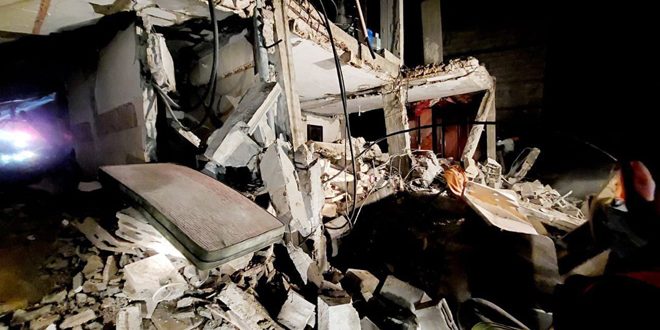New York (ST) – The head of 19 UN and international agencies warned that the people of Gaza are facing grave danger, while the world is silently watching what is happening, calling on the world leaders to take measures to prevent a worse catastrophe in the stricken Strip, which has been subjected to brutal Israeli aggression since last October 7.
In a joint statement issued by the Inter-Agency Standing Committee (IASC), which is the highest-level humanitarian coordination platform of the UN System, the officials said: ” In the less than five months that followed the brutal 7 October attacks and the ensuing escalation, tens of thousands of Palestinians – mostly women and children – have been killed and injured in the Gaza Strip. More than three quarters of the population have been forced from their homes, many multiple times, and face severe shortages of food, water, sanitation and healthcare – the basic necessities to survive.”
The officials indicated that the health system continues to be systematically degraded, with catastrophic consequences. As of 19 February, only 12 out of 36 hospitals with inpatient capacity are still functioning, and only partially. There have been more than 370 attacks on health care in Gaza since 7 October.
“Diseases are rampant. Famine is looming. Water is at a trickle. Basic infrastructure has been decimated. Food production has come to a halt. Hospitals have turned into battlefields. One million children face daily traumas.”
“Rafah, the latest destination for well over 1 million displaced, hungry and traumatized people crammed into a small sliver of land, has become another battleground in this brutal conflict. Further escalation of violence in this densely populated area would cause mass casualties. It could also deal a death blow to a humanitarian response that is already on its knees”, they added.
The officials stressed that humanitarian workers, themselves displaced and facing shelling, death, movement restrictions and a breakdown of civil order, continue efforts to deliver to those in need, but faced with so many obstacles – including safety and movement restrictions – they can only do so much.
In their statement, the officials called for an immediate ceasefire, the protection f civilians and infrastructure they rely on, and the establishment of reliable entry points that would allow the entry of aid from all possible crossings, including to northern Gaza.
They called on Israel to fulfil its legal obligation, under international humanitarian and human rights law, to provide food and medical supplies and facilitate aid operations, and on the world’s leaders to prevent an even worse catastrophe from happening.
Among the officials who signed the joint statement were Martin Griffiths, Emergency Relief Coordinator and Under-Secretary-General for Humanitarian Affairs (OCHA), Qu Dongyu, Director-General, Food and Agriculture Organization (FAO), and Tedros Adhanom Ghebreyesus, Director-General, World Health Organization (WHO).
Najla Khoury

